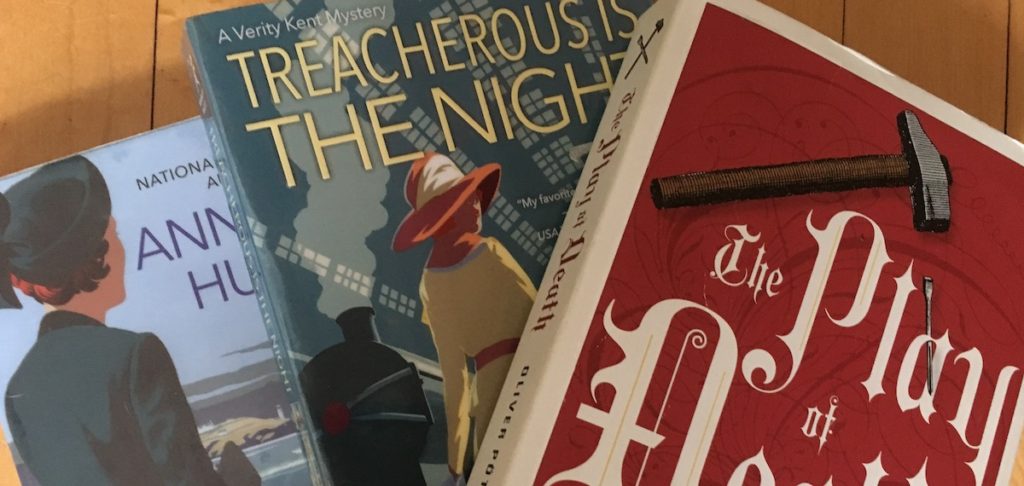
Mystery books are a guilty pleasure of mine. On television, I confess that I’ll watch almost any mystery or police procedural, and my relationship with audiobooks is similar—I just need a plot-driven mystery to focus my attention so I don’t hate all the other drivers on my highway. But I’m a bit more discerning about what I read in print.
Post-war intrigue
I’ve just discovered a new-to-me series that I’m quite enjoying, written by Anna Lee Huber with a heroine named Verity Kent. There are three of these published so far, and I’ve devoured the first two (albeit in reverse order) since the start of 2020. They’re set in the period just after World War I, and our heroine is a former Secret Service agent cut loose from her public service to make way for men returning from the war. She’s smart, gutsy, and doesn’t take herself too seriously, and the books are full of rich historical detail and post-war political intrigue.
I’ve seen the series described in some places as historical romance, and alternatively as “cozy mystery,” and I don’t think either term is fair (and yes, you correctly detect my bias against both). These definitely are not romance novels; there are some romantic entanglements, but they’re neither the focus nor driving element of the books; they’re maybe a decoration. As for “cozy mystery,” these fit some elements of the definition—female, amateur heroine, not a lot of violence—but they’re more intense and have more depth than most of that sub-genre. (Also, I’ll admit that I just can’t accept putting these books into the same sub-genre as the television series “Murder, She Wrote.”)
We can quibble over the genre or sub-genre, but I’ll keep reading, regardless how they’re categorized.
A hangman’s daughter
Just today I finished The Play of Death, by Oliver Potzsch, which is an altogether different sort of mystery, although again historical, part of a series, and including at least one amateur female heroine. Set in 1670 in the German area near Oberammergau, it actually offers a family of reluctant detectives: a hangman, his two daughters, and the husband of one doctor.
Again, we have a very twisting plot with lots of surprises, in this case connected with the early years of the Oberammergau Passion play, which is still performed every decade. Unlike the Verity Kent series, this is a long book—almost 500 pages in the paperback English edition—but it reads quickly.
I liked this one partly because it deals with social themes that are relevant today: class-based inequities, for one, and xenophobia, for another. The author addresses this in the afterword:
A historical novel also doesn’t exist in a political vacuum. This book was written at a time of controlled right-wing demonstrations everywhere in Germany, and later during the conflict over the increasing number of refugees arriving before our very doors here in Europe. I’ve seen some dreadful comments on Facebook by people who have been indoctrinated by right-wing hate groups. … Perhaps interest in my novel will provide not just excitement and entertainment but an opportunity to rethink some of this.
We can hope.
